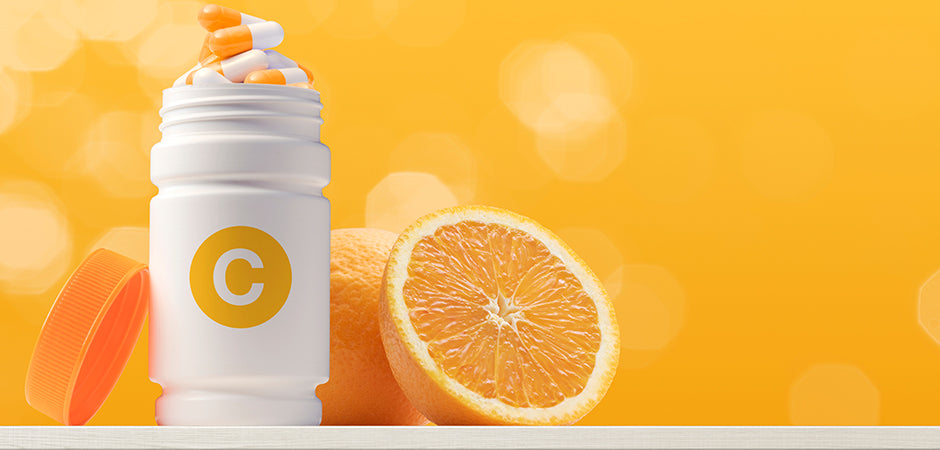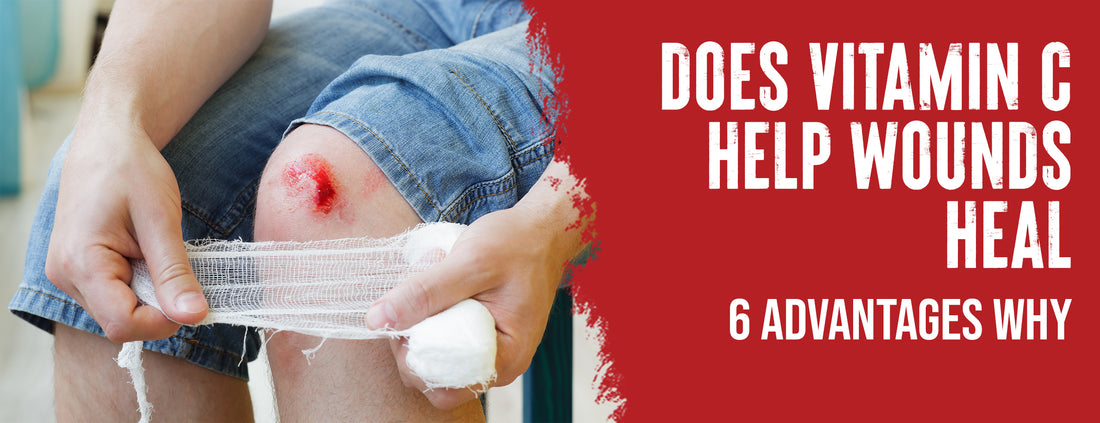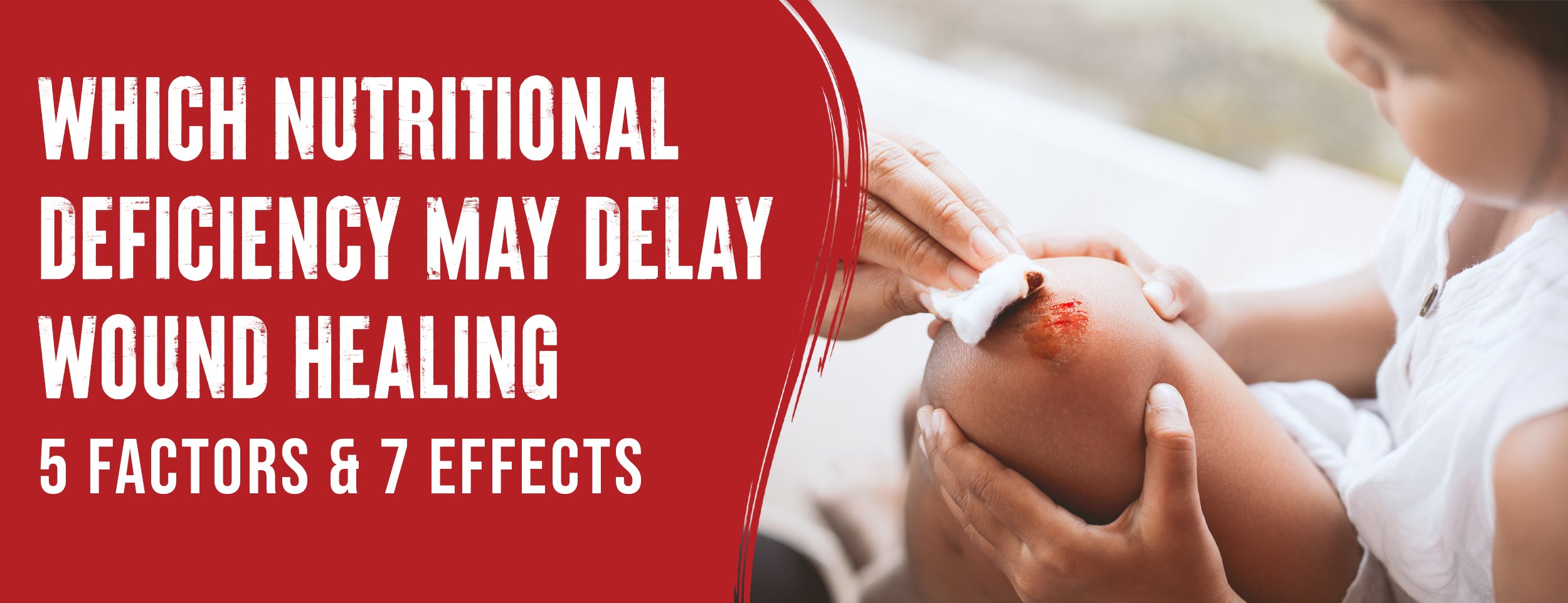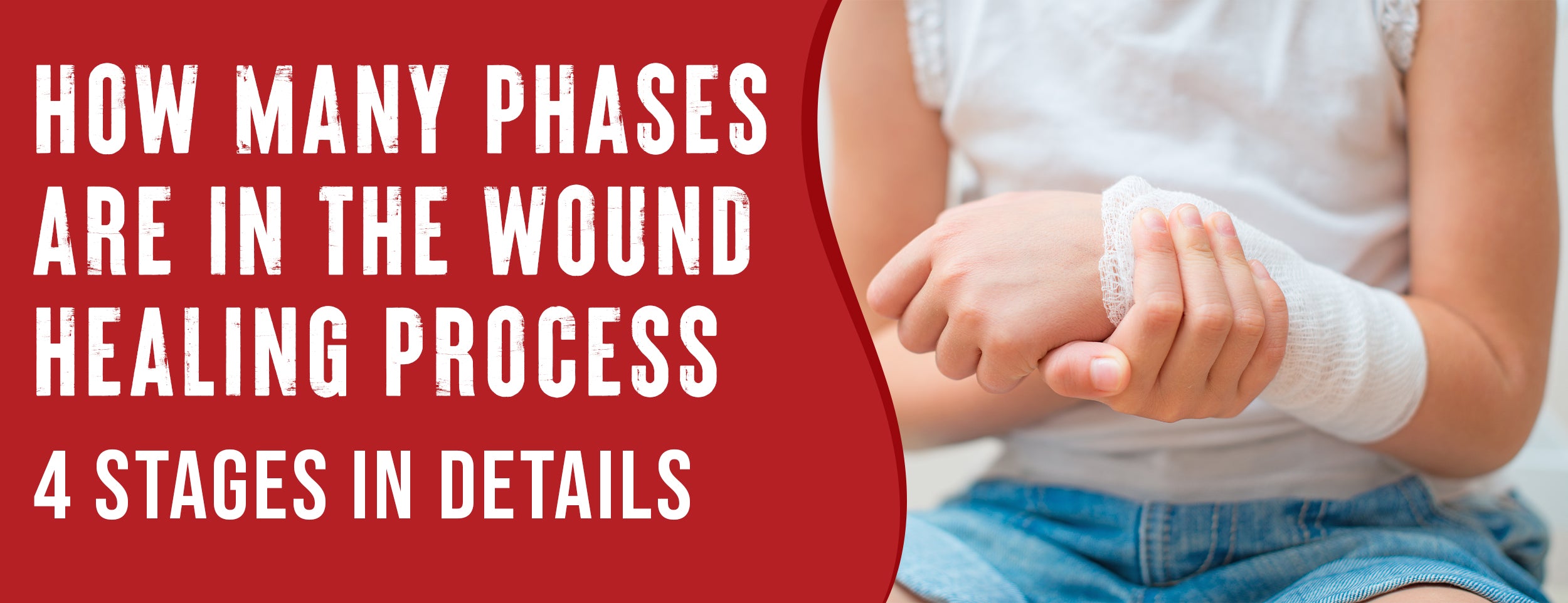Our bodies cannot produce enough collagen without vitamin C, which leads to slower wound healing or, in severe cases, scurvy. Symptoms of scurvy include fatigue, weakness, and bleeding gums, which are caused by severe vitamin C deficiency. Vitamin C deficiency even causes poor scarring and increased infection rates.
Yes, Vitamin C does help wounds heal. It supports wound healing through its antioxidant, anti-inflammatory, and immune system-modulating activities.
It plays a fundamental role in synthesizing collagen, a protein that confers strength and elasticity to connective tissues, including skin. This aids in the growth of new blood vessels, essential for wound healing.
In this blog post, we discuss the advantages of vitamin C for wound healing, ways to incorporate it into your wound care regimen, and vitamin C-rich foods and supplements for wound healing.
Does Vitamin C Help Wounds Heal: 6 Advantage

Wound healing relies heavily on vitamin C because of its involvement in various biological processes. Here are some benefits of vitamin C on wound healing.
Collagen Synthesis
The production of collagen, a structural protein, is essential for giving connective tissues, such as the skin, strength and integrity. Wounded tissues heal with collagen, a vital component of the extracellular matrix. Vitamin C is essential to the regeneration of tissues and the closure of wounds.
Antioxidant Properties
As an antioxidant, vitamin C helps to prevent oxidative stress and reactive oxygen species formation. It has been shown that oxidative stress may interfere with wound healing and cause tissue damage. Antioxidant properties of vitamin C promote wound healing by neutralizing harmful free radicals.
Immune Function
The immune system is vital for wound healing; vitamin C supports that function. This agent enhances various immune cells involved in inflammation and infection. Debris from the wound site is cleared through the use of this agent. Antioxidant properties of vitamin C support the healing process by supporting immune function.

Collagen Cross-linking
Vitamin C is essential for collagen cross-linking, strengthening collagen fibers, and improving tissue tensile strength. Cross-linking contributes to the maturation and remodeling of the wound during healing.
Angiogenesis
Blood vessels are formed by vitamin C (angiogenesis). An adequate blood supply is necessary to deliver vitamins, nutrients, and immune cells to support tissue repair and regeneration.
Reduces Inflammation
Inflammation is a typical response in the body during the early stages of wound healing. Excessive inflammation can delay the healing process. Inflammatory properties of vitamin C, which can help to reduce inflammation and facilitate faster recovery, have been found.
5 Tips For Incorporating Vitamin C Into Your Wound Healing Routine

Vitamin C stands out because it helps you make collagen, but it also protects your cells from damage with antioxidant properties. So, if you want to speed up your recovery and return to your life, here are some tips on getting Vitamin C in your regimen.
Follow The Recommended Daily Intake
Adults' recommended daily Vitamin C intake is approximately 75-90mg. If you have a wound, your body requires more Vitamin C for optimal healing. You should speak to your healthcare professional to determine the dosage of Vitamin C for your specific wound healing needs.
Choose Quality Supplements and Topical Products
Not all Vitamin C supplements and topical products are created equal. A high-quality product must contain a sufficient dosage of Vitamin C to promote optimal healing. Topical creams and ointments containing Vitamin C can be applied directly to your wound for faster recovery.
Consume Fresh Fruits And Vegetables
Fresh fruits and vegetables are among the best ways to get enough Vitamin C. Try citrus fruits, strawberries, kiwis, red and green peppers, broccoli, and spinach. Boost your immune system, prevent infection, and promote optimal wound healing.
Apply Products As Directed
Vitamin C supplements and topical creams should be used according to the manufacturer's instructions. It is possible to experience adverse effects from overuse or misuse of these products, including skin irritation, nausea, and stomach discomfort.
Consult With A Healthcare Professional
A medical professional should always prescribe vitamin C supplements and topical. Be sure to contact your healthcare professional if you experience any adverse effects.

Best Foods and Supplements Rich In Vitamin C for Healing Wounds
An antioxidant such as vitamin C aids wound healing. Collagen plays a vital role in repairing damaged tissues and reducing inflammation. Incorporating vitamin C supplements, foods, and topical applications into your wound healing routine can support the healing process and help you recover faster.
Supplements
A vitamin C supplement is an excellent option for those not consuming enough vitamin C. You can find supplements in various forms, including tablets, capsules, powders, or gummies. Here are a few things to keep in mind when taking supplements:
- Choose a high-quality supplement: Look for a supplement containing pure ascorbic acid, the most active form of vitamin C.
- Follow the recommended dosage: Taking too much vitamin C can cause gastrointestinal issues like diarrhea and stomach cramps.
- Take the supplement with food: Consuming vitamin C may improve absorption and reduce stomach discomfort.
Foods Rich In Vitamin C
Adding foods rich in vitamin C to your diet is an excellent way to ensure you get enough of this essential nutrient. Here are some foods that are high in vitamin C:
- Citrus fruits: oranges, lemons, limes, and grapefruits are all excellent sources of vitamin C.
- Berries: strawberries, raspberries, and blackberries are rich in vitamin C.
- Vegetables: bell peppers, broccoli, cauliflower, and kale are high in vitamin C.
Topical Application

Topical applications like vitamin C serums and creams can enhance the healing process by delivering vitamin C directly to the site of the wound. Tips for using topical applications include:
- Choose a product with a high concentration of vitamin C: Select a supplement with a vitamin C concentration of at least 10%.
- Apply the product to clean, dry skin: Make sure the wound area is clean and dry before applying the product.
- Apply the product twice a day: Apply the product in the morning and evening to ensure maximum benefits.
Conclusion
It is essential to take vitamin C to help wounds heal faster. Its antioxidant properties are critical in repairing damaged cells, promoting cell growth, and boosting the immune system overall. Also, vitamin C contributes to collagen production, strengthening and improving new skin and tissue that form during healing.
Incorporating vitamin C into your diet can speed up healing time, reduce inflammation, and strengthen your immune system. You should always consult your doctor for your needs and body type.










![11 Types & 7 Benefits of Wound Ointments [Most Effective]](http://drnumb.com/cdn/shop/articles/What_Ointment_Is_Best_For_Wound_Healing__14_Types_7_Benefits.jpg?v=1716200317)



